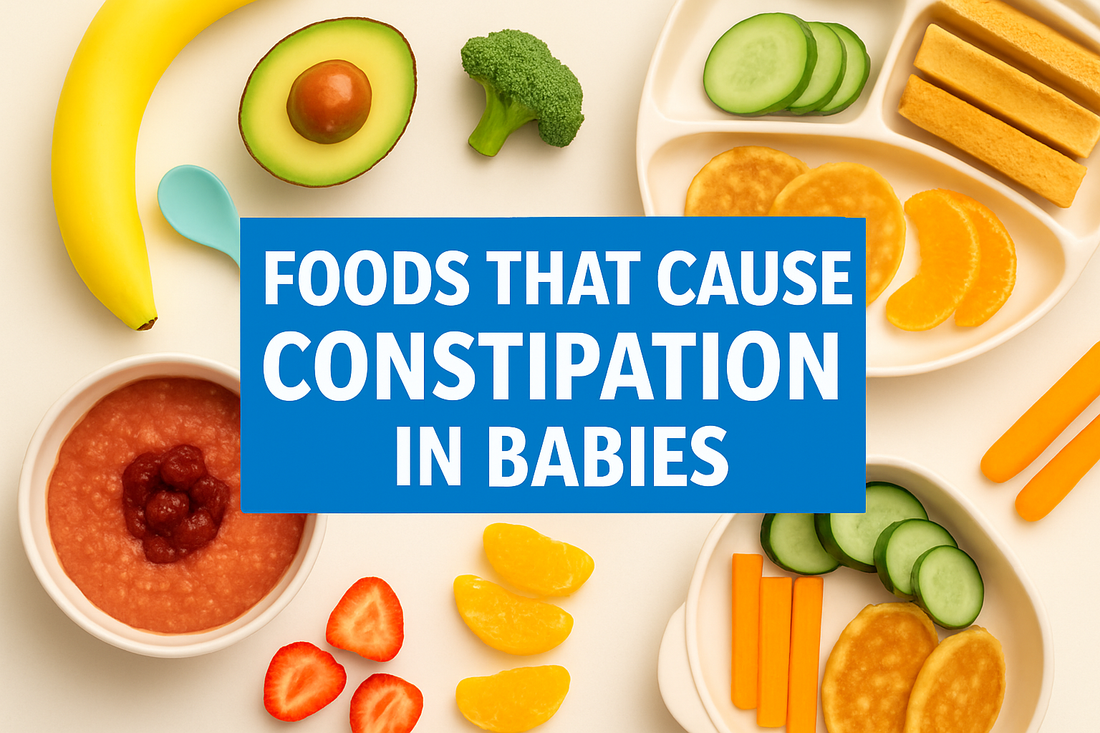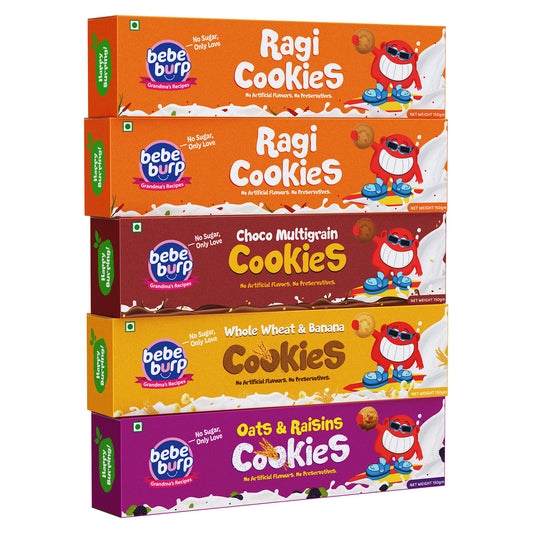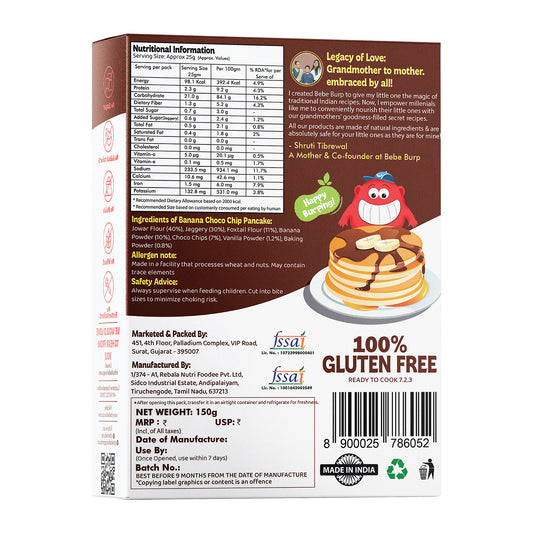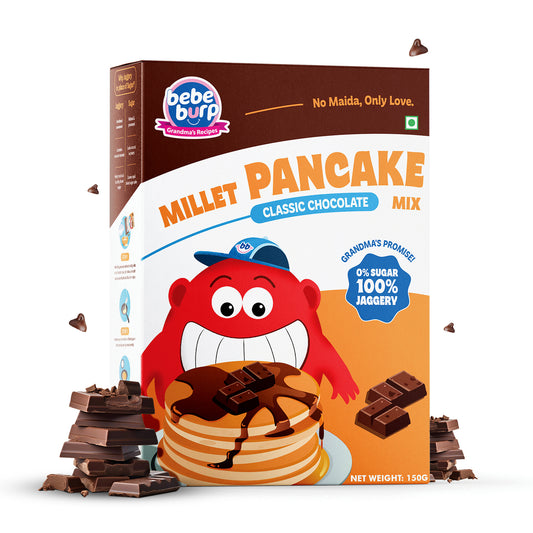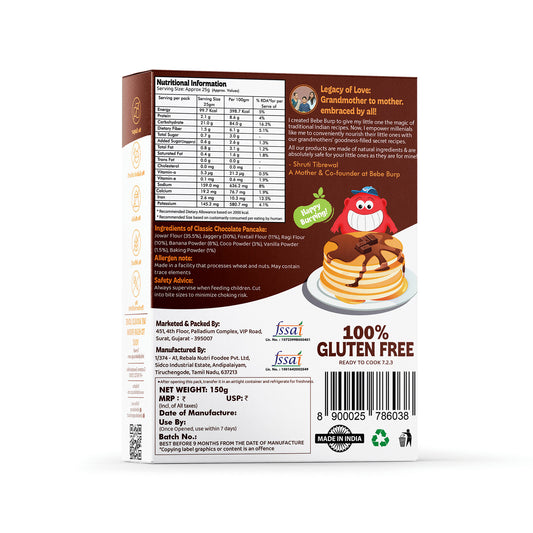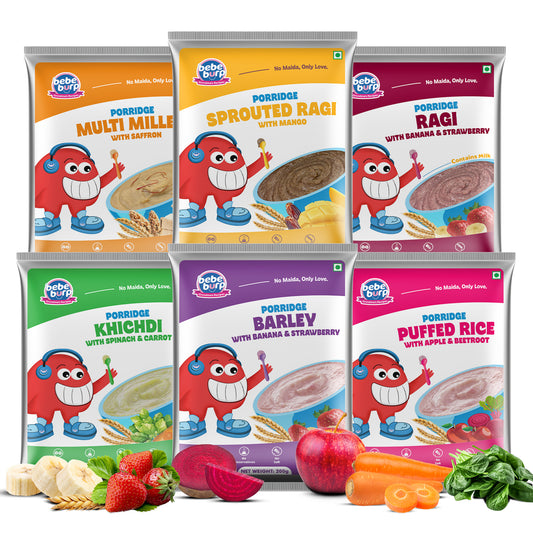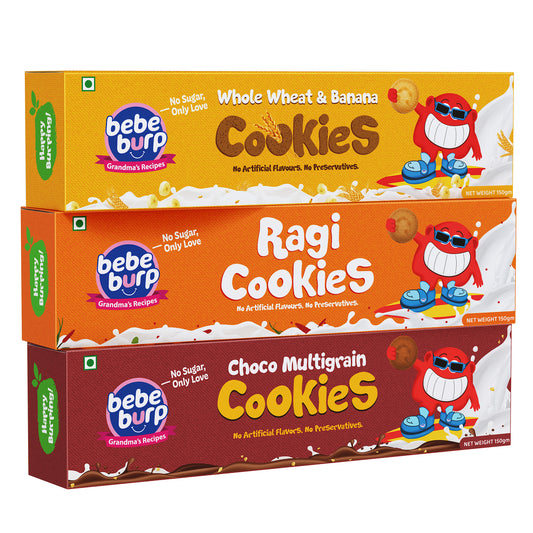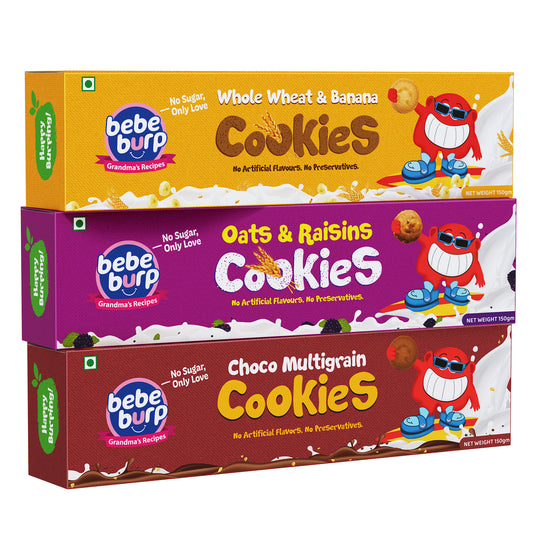Certain common baby foods may be subconsciously causing discomfort, fussiness, and constipation in babies by dragging them slowly through their tummies. One can make the digestive process sluggish by eating low-fiber cereals and refined flour snacks, excessive cheese, whole milk, or even overripe bananas. Information about these villains (and alternatives to what you should not give) may be what keeps your baby happy, healthy and free of poop problems.
Understanding Baby Constipation: Signs and Symptoms
Have you ever noticed your baby going red on the face, straining yet holding it in and not pooping? 😟
That is usually constipation and it is more common than people would imagine. It is not only the fewer stinky diapers; constipation manifests itself in numerous ways.
Early detection of these signs may enable you to soothe your little one and have those joyful giggles early.
Typical tamperings of constipation in infants:
- Instead of soft, hard or dry or pellet-like stools.
- Bowel straining or crying around the bowel or a strained appearance.
- Loss of or rejection of feeding.
- Swollen or hard belly which is tight to touch.
- A lesser number of soiled diapers.
- Small tears of hard poop end up with blood streaks in stool.
- Being more grumpy or irritable with no clear cause.
Common Foods That Cause Constipation in Babies
Certain foods although completely okay might slacken down the pace at which your baby digests food and poops particularly when eaten prematurely or in excess.
Being aware of the foods to keep an eye on can save you the hassles of tummy and will ensure your little one has a smooth bowel movement.
These are some of the most frequent baby foods that cause constipation:
- Before 1 year- Cow milk easily leads to diarrhea and constipation.
- Green bananas- green bananas have plenty of starch that may solidify bowel movements.
- Dairy products like cheese may make your baby have a harder stool.
- White bread, pasta, or rice, vegetables - they lack fiber and could cause slower digestion.
- Red meat - abundant in protein and low in fiber, this causes stools to become harder.
- Masses of cooked carrots- fewer fibers than raw, will swell up stools.
- Blueberries left over exorbitantly- tannins may solidify bowels when consumed in large quantities.
- Processed snacks and sweets contain little or no fiber, an excess of sugar and unhealthy fats and slow digestion.
Hidden Culprits: Everyday Foods That May Trigger Constipation
Even the more obvious food stuffs are not always the culprits when it comes to constipation; there are sneaky little culprits too in our normal and apparently healthy foods.
These sneaky villains may appear innocent but with a large intake and depending on the age of your baby, they can cause slow digestion and produce harder bowel movements.
Look out when these daily constipation triggers cause the problem:
- Enriched cereals with iron- very nutritious, except that extra iron may cause constipation.
- Nut butters- thick paste is hard to digest when in large portions.
- Applesauce- Reduces fiber in apples can tighten up loose stools.
- An excess of formula texture- wise not enough water may make bowel movements dry and hard.
- Eggs Good food, just no fiber so pair with fibre foods.
- Mangoes (too much) - may bring about a bit of constipation in tender babies.
- Fruit juices (sour apples or grapes, etc.)- disrupt digestion in very babies.
- Mashed potatoes - these are already starchy and low in fiber unless you mix them with veggies.
Best Foods for Baby Constipation Relief
Having constipation may cause your baby to be fussy, uncomfortable, and lack appetite to eat.
The great news? Some foods will subtly reset their digestion back to normalcy- soften stool, increase fiber content and keep their little bellies smiley. And this will be your up-to-date list of relief:
Fiber-Rich Fruits
- Pears- These are naturally sweet, they are soft and fiber enriched.
- Peaches - Moisturising and not harmful on the tummy.
- Papaya- It is loaded with enzymes that are friendly to the digestive system.
- Prunes- an open laxative which softens bowel movements.
Veggies That Help
- Broccoli- Fiber and hydration florets that are cooked softly.
- Pumpkin- Versatile in terms of the fact that it is smooth and mashable as well as fibrous.
- Sweet Potatoes - Healthy, sweet, and satisfying and high in fiber.
Baby-Friendly Grains
- Oatmeal - Digests easily and it is fiberful by nature.
Hydration Boosters
- Water- Makes the stools loose and soft.
- Fruits that are juicy Juicy - watermelon or ripe melon to increase the amount of water.
Prevention Tips: How to Maintain a Balanced Diet for Your Baby
A happy stomach begins with eating the right habits. Integrating fiber-rich food, adequate hydration, and an intelligent feeding schedule will allow keeping the digestion of your baby healthy and prevent any cases of constipation in the first place.
Prevention tips to constipation to the baby:
- Introduce fiber foods - pears, papaya, prunes, pumpkin, broccoli, sweet potatoes.
- Make sure your baby is well hydrated - less than 1 year old breast milk/formula, after 6 months a small spoon of water.
- Add good fats- avocado, ghee, nut butters (age dependent).
- Keep to meal times- regular eating times aid bowel frequency.
- Restrict constipation-inducing food stuffs like cheese, refined grains, and unripe bananas.
- Promote Proprioreception and body awareness, tummy time, and bicycle leg exercises, earlier in infants.
When to Be Concerned About Baby Constipation
Mild constipation is normal and does not concern much but at times, this may be an indicator of something worse which may require medical care.
Familiar with the red flags will make you take action fast to ensure your baby is safe.
Red Flags to Watch For
- A week (or whatever the age, diet permitting) of no poop.
- Screaming or crying whenever they move to pass stools.
- Pebble-like stools that have blood stains.
- Swelling or hardness of the belly whose symptoms do not disappear.
- Nausea with vomiting and constipation.
- Turning away the feeds or eating much less than before.
- Elevated temperature accompanied by the signs of constipation.
Home Remedies to Relieve Baby Constipation Naturally
Your baby may find it hard to defecate but that does not always mean that medicine should be run after.
There is a lot that can be done with gentle natural remedies to get things moving and ease discomfort- all without being harmful to little tummies.
For Babies Under 6 Months
- Tummy massage - apply some soft abdominal massage to stimulate the bowels.
- Bicycle legs - Use your hands to move his/her legs pedaling to have the gas and poop move.
- Warm bath - It helps muscles relax and stools may come out with ease.
- Additional feeds - Increasing the number of feeds with more breast milk or formula may help hydration improve and stools become soft.
For Babies 6 Months & Above
- Provide high fiber purees- pears, prunes, papaya, and pumpkin are magic.
- Frequent water drinking should be encouraged, to sip because of meals to make stools soft.between
- Ragi or oatmeal porridge- light on the stomach and high in fiber.
- Put in some good oils like- avocado, ghee, or 1 teaspoon of olive oil in the purees to ensure easy defecation.
FAQs About Baby Constipation and Diet
Q1) Is it standard that my baby can poop in less than a few days?
Ans: Well, in some babies skipping a few days (particularly in breastfed babies), is normal, as long as the poop is soft, and the baby feels alright.
Q2) What foods are the greatest risk of triggering constipation in infants?
Ans: It can be caused by cow milk (pre-1-year-old), unripe bananas, refined grain (white bread, pasta), excess cheese and iron-fortified cereals (when excessive).
Q3) Which are the more effective baby foods to alleviate baby constipation?
Ans: Stoola Making Pears, prunes, papaya, peaches, pumpkin, broccoli, sweet potatoes, oatmeal and plenty of water are aids to soften stools and facilitate digestion.
Q4) Can formula feeding cause constipation?
Ans: Sometimes, yes — especially if the formula isn’t mixed properly or if your baby isn’t getting enough fluids.
Q5) What amount of water do I give my baby to relieve constipation?
Ans: Newborns up to 6 months most likely do not have any requirement of water (the breast milk/formula is sufficient to fulfill their water requirements). Introduce a few sips after food after 6 months -but do not overfeed.
Q6) How concerned should I be about constipation?
Ans: Hard, bloody stools, a failure to bowel movement within 5-7 days, apparent pain, abdominal swelling, or vomiting should make you call a pediatrician at once.
Conclusion
Babies often have constipation, especially when they are going through a period of growth or when their diets change, but when aware of this with proper care it is generally not difficult to handle.
Identifying warning signs, shunning constipation-inducing foods, adding fiber supplements and hydrating remedies to your daily diet keeps the digestive system of your baby smooth and pain-free.
I have found that gentle home care and a good diet has been a miracle, but be sure to follow your intuition, when something just isn't right, turn to a doctor immediately.
A happy belly translates to a happier baby and that is the actual aim of any parent.

